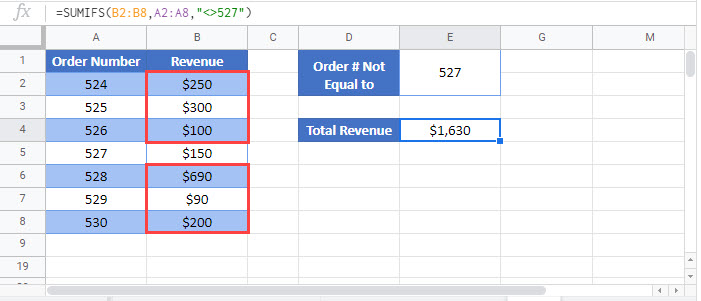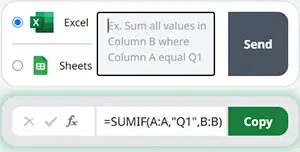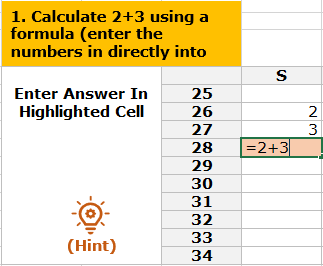Sum If Cells Not Equal to – Excel & Google Sheets
Written by
Reviewed by
Download the example workbook
This tutorial will demonstrate how to use the SUMIFS Function to sum rows not equal to specific values in Excel and Google Sheets.
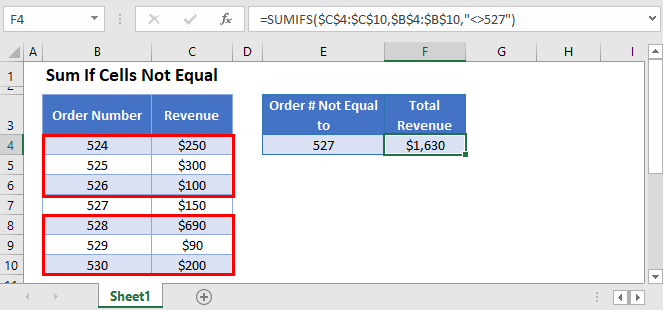
Sum If Not Equal To
The SUMIFS Function sums data that meet certain criteria. Its syntax is:
![]()
This example will sum the Revenue for all Order Numbers not equal to 527.
=SUMIFS(C3:C9,B3:B9,"<>527")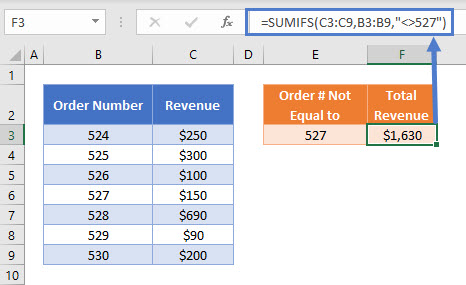
As shown above, to test whether the Order Number is not equal to 527, we use:
"<>527"Note that when hard-coding the criteria into the SUMIFS Function, the logical test must be within double quotes (” “).
Other logical operators can also be used in this formula, such as:
- Equal to (“=524”)
- Greater than (“>526”)
- Greater than or equal to (“>=529”)
- Less than (“<528”)
- Less than or equal to (“<=525”)
Sum If Not Equal To – Cell References
Usually, it is bad practice to hard-code values into formulas. Instead, it is more flexible to use a separate cell to define the criteria’s value.
=SUMIFS(C3:C9,B3:B9,"<>"&E3)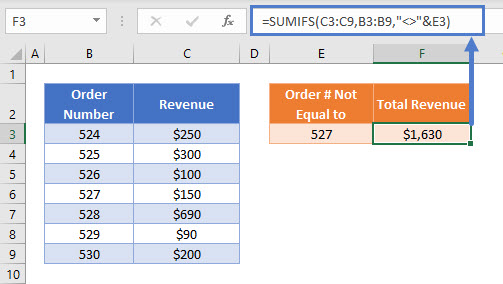
Start with the logical operator within double quotes (“<>”) and use the & symbol to join the operator with the cell reference:
"<>"&E3Locking Cell References
To make our formulas easier to read, we’ve shown the formulas without locked cell references:
=SUMIFS(C3:C9,B3:B9,"<>"&E3)But these formulas will not work properly when copy and pasted elsewhere in your file. Instead, you should use locked cell references like this:
=SUMIFS($C$3:$C$9,$B$3:$B$9,"<>"&E3)Read our article on Locking Cell References to learn more.
Sum If Not Equal To in Google Sheets
These formulas work exactly the same in Google Sheets as in Excel.
